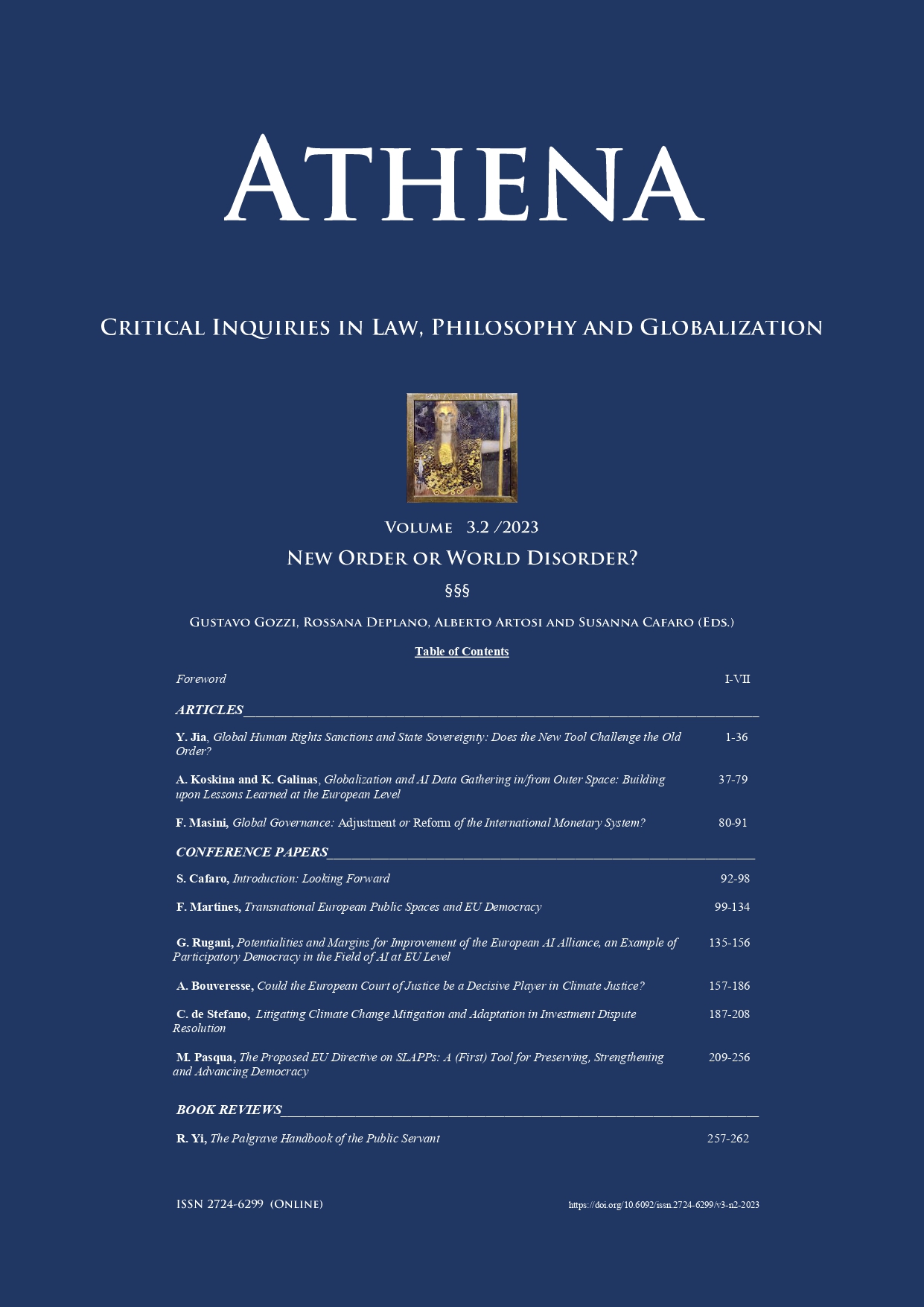Global Human Rights Sanctions and State Sovereignty: Does the New Tool Challenge the Old Order?
DOI:
https://doi.org/10.6092/issn.2724-6299/17357Keywords:
global human rights sanctions, state sovereignty, extraterritorial jurisdiction, countermeasures, asset freezingAbstract
Global human rights sanctions (also known as Magnitsky sanctions) regimes target individuals and entities involved in gross human rights abuses. The sanctions measures, including visa bans, transaction restrictions, and asset freezes, are implemented through executive decision-making processes. This article critically analyses the legality of Magnitsky sanctions in relation to the principle of state sovereignty, exploring whether these new transnational legal regimes disrupt the existing international legal order. Given that global human rights sanctions can be employed to address both individual responsibility and state responsibility for human rights violations, this paper scrutinizes the legitimacy of the jurisdiction of these sanctions and evaluates whether they can be justified as countermeasures, respectively. This paper argues that the jurisdiction of sanctions is not in violation of international law. As unilateral measures against states for violating human rights law, Magnitsky sanctions can significantly contribute to the formation of customary international law on third-party countermeasures.
Downloads
Downloads
Published
How to Cite
Issue
Section
License
Copyright (c) 2023 Yifan Jia

This work is licensed under a Creative Commons Attribution 4.0 International License.





